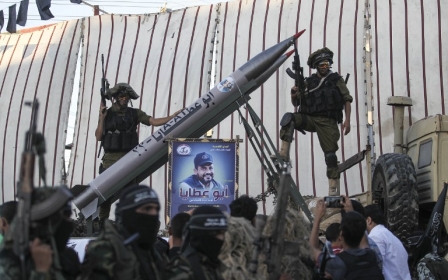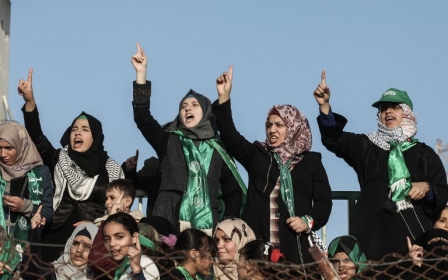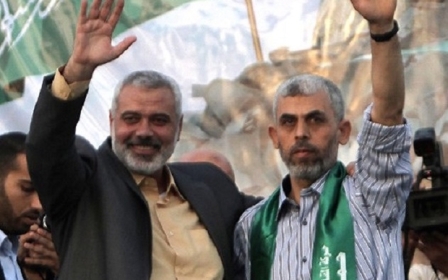Netanyahu, Israeli army unprepared for Gaza tunnel war, Shapira report finds

Israeli Prime Minister Benjamin Netanyahu and military chiefs were unprepared for the strategic threat of tunnels used by Hamas militants during the 2014 Gaza war, a state inquiry has found.
"The political establishment, the military establishment and the intelligence bodies were aware of the tunnel threat and even defined it as strategic," state comptroller Yosef Shapira wrote in his report. "And yet the actions taken to deal with the threat did not match this definition."
The war, which lasted from July to August 2014, resulted in the deaths of 2,251 Palestinians, mostly civilians, according to the UN. Seventy four Israelis died, 68 of them soldiers. Shapira launched the probe almost immediately after the 50-day conflict.
The declared goals of Israel's offensive - the third against Gaza in six years - included wiping out the tunnels, some of which were used by militants to infiltrate Israel and carry out deadly attacks there, others to surprise Israeli forces inside Gaza.
But the report said that Netanyahu and then-defence minister Moshe Ya'alon did not fully share information they had on the tunnels with other members of the security cabinet, speaking instead in "sparse and general" terms.
The two men also failed to provide the ministers with "significant and essential information", necessary to make "well-informed decisions" on the situation in Gaza ahead of the war, Shapira added.
This lack of planning left Israeli soldiers to face a major threat without a specific plan, the 200-page report compiled by Shapira - who is in charge of assessing governance and use of public funds - concluded.
Netanyahu hits back
Netanyahu appeared on the defensive earlier on Tuesday ahead of the report's publication. He has frequently denied such claims about his conduct during the war, saying he regularly briefed colleagues on the situation.
Speaking to his party ahead of the report's release, Netanyahu accused Shapira of not supporting the army.
'The truly important lessons aren't located in the state comptroller's report, and we apply them without declarations and statements to the media'
- Benjamin Netanyahu
"As opposed to the state comptroller's report, I support the heads of the (army)," he said. "The truly important lessons aren't located in the state comptroller's report, and we apply them without declarations and statements to the media," he added.
And on Monday he told members of his Likud faction that "no cabinet in the country's history was updated more" than his wartime cabinet.
The findings of the two-year inquiry have created heated interest amid Israel's political establishment.
But Avraham Diskin, a political scientist from Jerusalem's Hebrew University, said he did not expect any major political upheaval or resignations.
"The report won't cause an earthquake," he said, adding that such inquiries rarely have dramatic long-term impacts.
Conflict in cabinet
Maariv columnist Ben Caspit said Netanyahu's remarks constituted "incitement" against the state comptroller. Shapira's report was "an important, in-depth and serious document", he wrote.
A "reasonable" prime minister, he added, would have accepted that while the war achieved many of its objectives of weakening Hamas, "at the same time, there obviously were flaws".
The fallout could still set Netanyahu against his coalition partner and political rival Naftali Bennett, head of the rightwing Jewish Home party. Bennett has said that he and fellow members of the security cabinet were not properly briefed by Netanyahu on the tunnel threat.
Yair Lapid, another political opponent who was a member of the 2014 security cabinet, has likewise criticised Netanyahu's alleged lack of planning.
Israel's military found 32 tunnels, including 14 from the Gaza Strip into Israel, according to a UN inquiry on the war. Hamas says it has continued to dig new ones.
The ceasefire between Israel and Hamas continues to be fractious. In the latest flare up on Monday, a rocket fired from Gaza hit southern Israel without causing any damage. The army retaliated by bombing Hamas targets in the Palestinian enclave.
Middle East Eye propose une couverture et une analyse indépendantes et incomparables du Moyen-Orient, de l’Afrique du Nord et d’autres régions du monde. Pour en savoir plus sur la reprise de ce contenu et les frais qui s’appliquent, veuillez remplir ce formulaire [en anglais]. Pour en savoir plus sur MEE, cliquez ici [en anglais].




